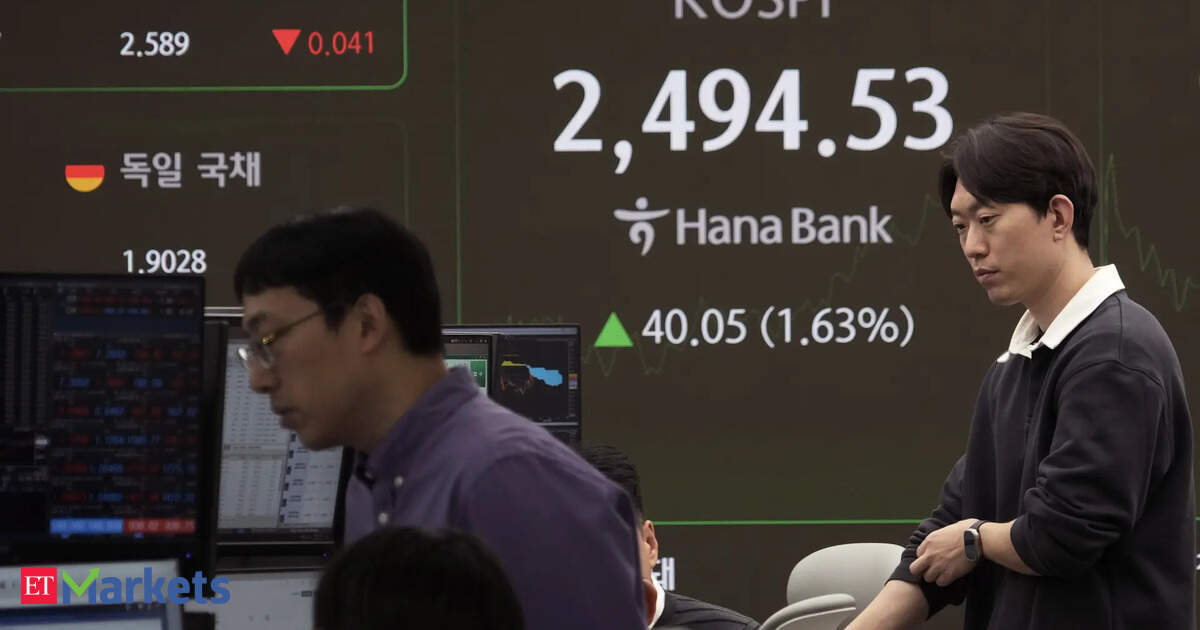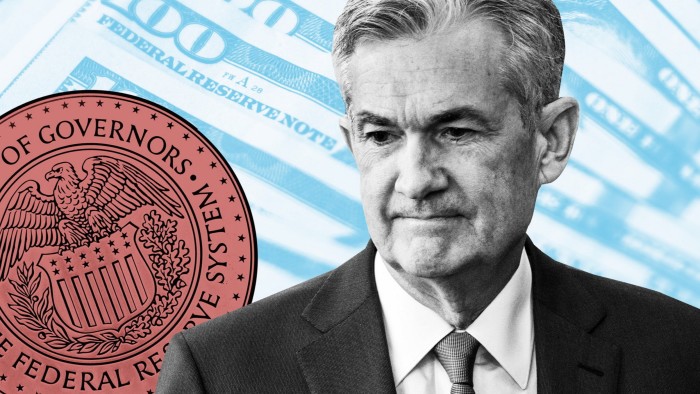MSCI’s gauge of Asia-Pacific shares advanced 0.3% as the Topix gained, while Australian equities fell. Contracts for US stocks opened flat after the S&P 500 ended Wednesday unchanged. The Nasdaq 100 rose 0.2%, helped along by a record high for Nvidia Corp. shares.
Short-dated Treasuries rallied on Wednesday, bringing the two-year yield four basis points lower, while long-dated US government debt was broadly unchanged. The dollar fell early Thursday after a media report that President Donald Trump may announce a new Federal Reserve Chair even with 11 months left in Jerome Powell’s term. The decline extended a slump from the prior session that left the greenback trading near its three-year low. Oil held onto gains following its biggest two-day decline since 2022.
The moves reflected a sense of uncertainty as investors grappled with an uneasy ceasefire in the Middle East and the inflationary effects of US tariffs. Despite stabilizing prices, the oil market is still volatile, with Russia open to another output hike at the next OPEC+ meeting, and Trump’s comments on Iranian sanctions causing concerns.
Powell said Wednesday that the US central bank is struggling to determine the impact of tariffs on consumer prices. He added it was “very hard to predict” the inflationary impact of the levies, in Senate testimony after Fed officials left rates steady last week.
“If it were not for the uncertainty created by shifting trade policy, the Fed may have been able to cut interest rates this summer,” said Carol Schleif at BMO Private Wealth. “The Fed’s pause on interest-rate cuts is tariff induced, and not necessarily reflective of economic progress. We expect one to two cuts in 2025, starting most likely in September.”
Trump said the US would hold a meeting with Iran next week but cast doubt on the need for a diplomatic agreement on the country’s nuclear program, citing the damage that American bombing had done to key sites.
His comments came on day two of a ceasefire between Israel and Iran, ending 12 days of conflict that threatened to escalate into a wider regional war and upend energy markets.
“The markets are pricing in that the worst of the Iran/Israel conflict is behind us,” said Schleif. “Tariffs, trade, tax, inflation, employment and interest rates have a lot more sway on stocks right now.”
In Asia, Hong Kong’s de facto central bank bought the local dollar to prop it up on Thursday, in a move to defend the city’s currency peg to the greenback.
Gold was little changed early Thursday after rising 0.3% Wednesday.
Short-Term Breather
Despite the tumult of the past few weeks, the S&P 500 is within touching distance of its record high, while a gauge of global stocks touched a new peak on Wednesday. For some, the gains are beginning to stretch valuations and multiples are starting to look frothy.
“No market moves in a straight line,” said Matt Maley at Miller Tabak. “The thought that it might have to take a short-term breather is not something that will create any serious nervousness in the marketplace in and by itself.”
Meantime, JPMorgan Chase & Co. strategists are doubling down on their view that the US stock market is on track for a fresh record this year as the economy and consumers remain resilient despite policy uncertainty.
Absent any political or policy shocks, “we believe the path of least resistance to new highs will be supported by technology/artificial intelligence-led strong fundamentals, a steady bid from systematic strategies, and flows from active investors on dips,” strategists led by Dubravko Lakos-Bujas wrote.







